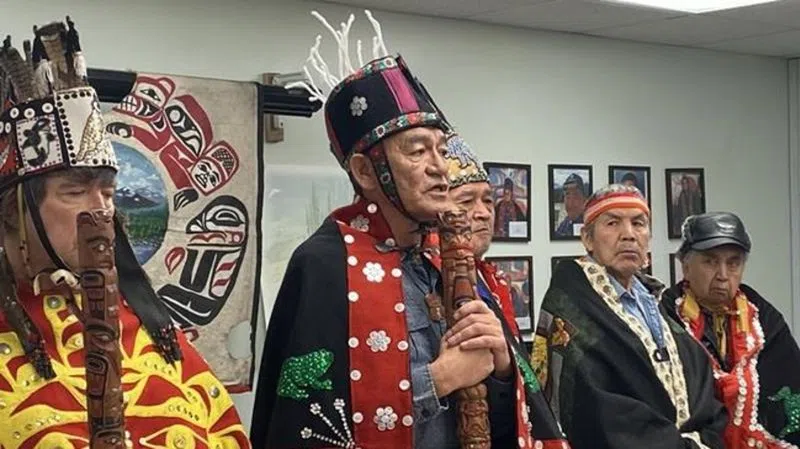
Chiefs say RCMP and pipeline firm must leave before they meet with government
VANCOUVER — A Wet’suwet’en hereditary chief says the chiefs won’t meet with the federal government over their opposition to a natural gas pipeline until both the RCMP and Coastal GasLink leave their traditional territory.
Na’moks, who also goes by John Ridsdale, said Wednesday the chiefs have communicated their terms to Carolyn Bennett, the minister responsible for Crown-Indigenous relations.
Bennett has sought to meet with the chiefs as the federal government faces mounting pressure to take action against protesters and demonstrators whose blockades have stopped road and rail traffic across the country.
“Remove RCMP from our territory, remove (Coastal GasLink) from our territory, and we’ll have discussions,” Na’moks said.


